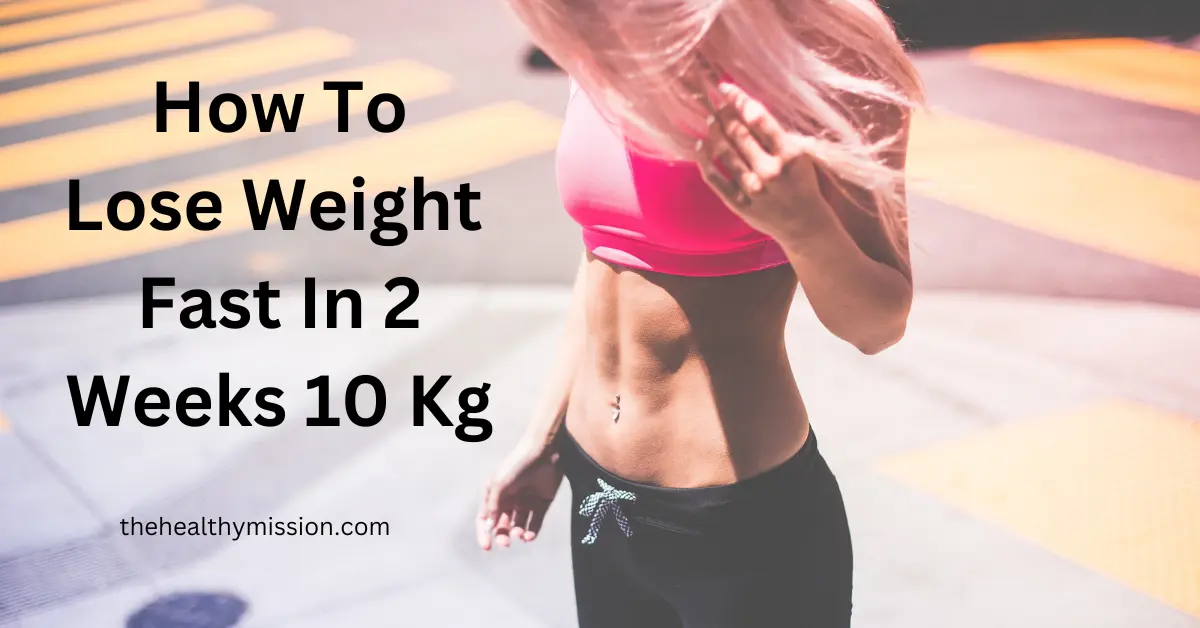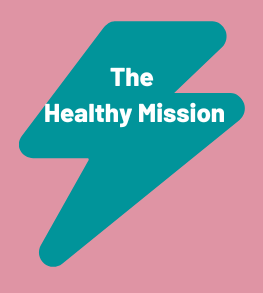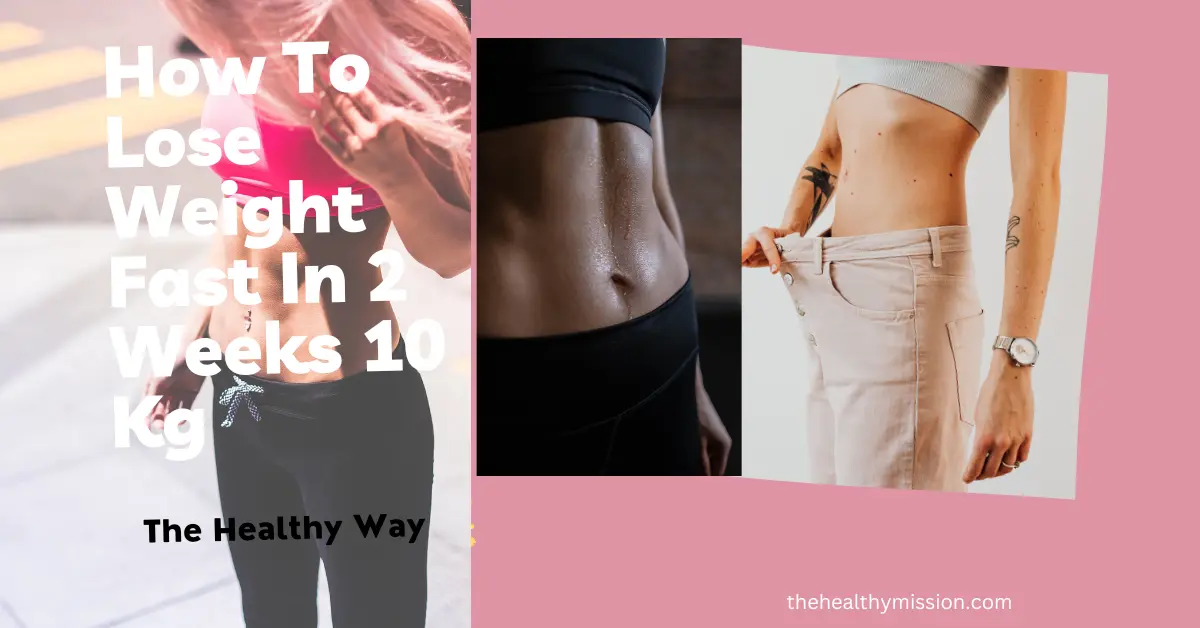Do you want to lose the excess pounds quickly because you’re sick of dragging them around with you? If you’re wondering how to lose weight fast in just 2 weeks 10 kg, we’ve got you covered. In this guide, we’ll explore various strategies, tips, and techniques to help you achieve your weight loss goals efficiently and safely.
Contents
hide

Whether you’re preparing for a special event or simply eager to make a positive change in your life, our comprehensive approach will provide you with the tools you need to embark on this transformative journey.
Get ready to discover effective methods that can help you lose weight rapidly and kick-start a healthier lifestyle.
How To Lose Weight Fast In 2 Weeks 10 Kg
While it’s important to approach weight loss in a healthy and sustainable manner, I can provide you with some general tips that may help you kick-start your journey. Please keep in mind that losing 10 kg in just two weeks is an aggressive goal, and it’s always advisable to consult a healthcare professional before embarking on any weight loss plan. Here are some suggestions:
Create a calorie deficit: Consume fewer calories than you burn. Aim for a daily deficit of around 500-1000 calories through a combination of diet and exercise.
Follow a balanced diet: Maintain a balanced diet by concentrating on unprocessed, whole foods such as fruits, vegetables, lean meats, whole grains, and healthy fats. Avoid sugary and high-calorie foods.
Portion control: Monitor your portion sizes to ensure you’re not overeating. Use smaller dishes and plates to visibly manage portion sizes.
Limit sugary drinks: Cut back on soda, sweetened juices, and energy drinks, as they can contribute to weight gain.
Increase water intake: Drinking an adequate amount of water can help boost your metabolism and reduce calorie intake.
Regular exercise: Incorporate both cardio exercises (like running, cycling, or swimming) and strength training exercises (such as weightlifting or bodyweight exercises) into your routine.
High-intensity interval training (HIIT): Consider incorporating HIIT workouts into your exercise routine. These short bursts of intense exercise followed by periods of rest can help burn calories efficiently.
Limit processed foods: Minimize your intake of processed foods, which are often high in unhealthy fats, sugars, and additives. Stick to whole, nutritious foods instead.
Follow your development: To be responsible, keep track of your eating habits and exercise schedule. There are various apps and websites available that can help you track your calorie intake and activity levels.
Get enough sleep: Aim for 7-9 hours of quality sleep each night. Sufficient sleep supports overall well-being, including weight management.
Minimize snacking: Avoid mindless snacking, especially on unhealthy foods. Choose nutritious snacks like fruits, vegetables, or nuts if you feel hungry between meals.
Manage stress: Find healthy ways to cope with stress, such as practicing meditation, deep breathing exercises, or engaging in hobbies you enjoy. Stress can sometimes lead to emotional eating.
Seek support: Consider involving a friend or family member in your weight loss journey for motivation and accountability. You can also join support groups or seek guidance from a registered dietitian or nutritionist.
Avoid late-night eating: Try to finish your meals at least 2-3 hours before bedtime to allow for proper digestion. Late-night snacking can contribute to weight gain.
Be patient and realistic: While it’s good to have goals, losing 10 kg in two weeks may not be achievable or healthy for everyone. Aim for gradual, sustainable weight loss instead.
Remember, everyone’s body is unique, and weight loss results can vary. It’s crucial to prioritize your overall well-being and consult a healthcare professional or a registered dietitian for personalized advice based on your specific needs and circumstances.
Are there any specific diets or eating plans that can help me lose weight rapidly in a short period of time?
While there are various diets and eating plans that claim to facilitate rapid weight loss, it’s important to approach them with caution. Many extreme or fad diets may yield quick results initially but can be unsustainable, nutritionally imbalanced, and potentially harmful to your health in the long term.
Here ere are a few popular diets that some individuals have tried for rapid weight loss:
Very Low-Calorie Diet (VLCD): VLCDs involve consuming extremely low calories, often fewer than 800 calories per day, to induce rapid weight loss. These diets typically include meal replacement shakes, bars, and limited solid food. They should be supervised by a healthcare professional due to their potential risks.
Ketogenic Diet: The ketogenic diet is a low-carbohydrate, high-fat eating plan that aims to shift your body into a state of ketosis. By significantly reducing carbohydrate intake and increasing fat consumption, your body starts burning fat for energy. This diet can lead to rapid initial weight loss due to water loss but may be challenging to sustain in the long term.
Cycles of fasting: Cycles of fasting and eating are part of intermittent fasting. Common methods include the 16/8 method (fasting for 16 hours and restricting eating to an 8-hour window) or alternate-day fasting. While intermittent fasting can lead to weight loss, it’s important to maintain a balanced diet during eating periods and ensure adequate nutrition.
Whole30: The Whole30 diet involves eliminating certain food groups, including grains, dairy, legumes, added sugars, and processed foods, for 30 days. It focuses on whole, unprocessed foods and encourages cooking meals from scratch. While weight loss can occur during this period, the primary goal is to identify potential food sensitivities and promote healthier eating habits.
Remember, these diets may not be suitable for everyone, and their effectiveness and safety can vary from person to person. Sustainable and long-term weight loss is generally achieved through a balanced, nutritious diet, regular physical activity, and healthy lifestyle habits.
Can drinking more water help speed up the weight loss process in two weeks?
Drinking an adequate amount of water is important for overall health and can play a role in supporting weight loss efforts. While it won’t directly cause significant weight loss on its own, staying well-hydrated can have several benefits that may indirectly contribute to weight loss. Here’s how drinking more water can be helpful:
-
Increased satiety: Drinking water before meals can help create a feeling of fullness, leading to reduced calorie intake during the meal. This can be beneficial in managing portion sizes and controlling overall calorie consumption.
-
Calorie-free hydration: Choosing water over sugary drinks like soda or juice can help reduce calorie intake. These high-calorie beverages can contribute to weight gain when consumed in excess.
-
Improved metabolism: Staying hydrated supports proper bodily functions, including metabolism. Adequate hydration helps your body efficiently convert food into energy, which can support weight management.
-
Enhanced exercise performance: Water is essential for maintaining optimal physical performance during exercise. When properly hydrated, you may have more energy and endurance to engage in physical activities, potentially leading to more effective workouts and calorie burning.
-
Reduced water retention: Paradoxically, drinking enough water can help reduce water retention and bloating. When the body is adequately hydrated, it’s less likely to hold on to excess water weight.
While water alone won’t result in significant weight loss, incorporating it as part of a healthy lifestyle can support your overall weight loss efforts.
It’s generally recommended to drink at least 8 glasses (64 ounces) of water per day, but individual needs may vary based on factors such as activity level, climate, and personal health considerations.
Are there any recommended supplements or weight loss products?
Before beginning any new supplements or weight reduction products, always check with a healthcare practitioner to be sure they are safe and acceptable for you, especially if you have any underlying health concerns or are taking medication.
Green tea extract: Green tea extract contains compounds called catechins, which may help boost metabolism and fat oxidation. However, the effects are modest, and weight loss results can vary.
Caffeine: Caffeine is a stimulant that may slightly increase metabolism and promote fat burning. However, it’s important to be mindful of your overall caffeine intake and potential side effects like jitteriness, sleep disturbances, or increased heart rate.
Conjugated linoleic acid (CLA): CLA is a fatty acid that has been studied for its potential effects on body composition. It may help reduce body fat, but the evidence is mixed, and long-term effects are not well-established.
Fiber supplements: Fiber supplements, such as glucomannan, can help increase feelings of fullness and promote weight loss by reducing calorie intake. They should be taken with plenty of water and as part of a balanced diet.
Again, it’s essential to emphasize that relying solely on supplements or weight loss products is not a sustainable or recommended approach.
They should be used in conjunction with healthy eating, regular exercise, and lifestyle modifications for long-term weight management.
What type of exercise should I focus on for maximum weight loss within two weeks?
To maximize weight loss within a two-week timeframe, it’s important to combine both cardiovascular exercises and strength training. Here are some exercise recommendations to help you achieve your goal:
High-Intensity Interval Training (HIIT): Short bursts of intensive exercise are interspersed with quick rest intervals during HIIT workouts.They are highly effective for burning calories and improving cardiovascular fitness. Examples include sprints, jumping jacks, burpees, or cycling at maximum effort for short intervals.
Cardiovascular exercises: Engage in aerobic activities that elevate your heart rate and burn calories. Running, cycling, swimming, brisk walking, dancing, or using cardio machines like the elliptical or stair climber are excellent choices.
Circuit training: Incorporate a combination of strength exercises with minimal rest in between. This keeps your heart rate elevated while building muscle. Perform a series of exercises targeting different muscle groups, such as squats, lunges, push-ups, planks, and dumbbell exercises.
Strength training: Incorporate resistance training to increase your lean muscle mass. Muscles burn more calories, even at rest, helping to boost your metabolism. Incorporate exercises like weightlifting, and bodyweight exercises (push-ups, squats, pull-ups), or use resistance bands.
Compound exercises: Focus on compound movements that engage multiple muscle groups simultaneously, maximizing calorie burn and efficiency. Examples include squats, deadlifts, lunges, bench presses, and overhead presses.
Increase intensity and duration: Increase the length and intensity of your workouts gradually as your fitness level rises. This can help accelerate weight loss by burning more calories.
Active lifestyle: Engage in physical activity on a daily basis. Take the stairs instead of the elevator, walk or bike instead of driving short distances, or incorporate active breaks throughout your day.
Stay consistent: Consistency is key. Aim for regular exercise sessions, preferably at least five days a week, to achieve maximum results within two weeks.
Remember to listen to your body, start at a suitable fitness level, and gradually increase the intensity to avoid injury. It’s also important to combine exercise with a balanced diet to optimize weight loss.
You May Also like: Does Plank Reduce Belly Fat
FAQ’s
Ques: How can I lose 10 kg slowly?
To lose 10 kg slowly, focus on creating a calorie deficit through a combination of balanced eating, portion control, and regular exercise.
Ques: How to burn 1,000 calories a day?
Burning 1,000 calories a day requires a significant amount of physical activity. Here are some strategies to help you achieve this goal:
-
High-intensity workouts
-
Longer duration cardio
-
Strength training
-
Increase daily activity
-
Be mindful of your diet
-
Monitor your calorie intake
-
Stay hydrated
Ques: How can I lose 10kg fast without exercise?
Losing 10 kg without exercise can be more challenging, as physical activity plays a significant role in weight loss. However, here are some strategies that can help you achieve weight loss without exercise:
-
Calorie deficit
-
Balanced diet:
-
Meal planning
-
Mindful eating
-
Hydration
-
Get enough sleep
-
Stress management
-
Seek support


This entrance is phenomenal. The splendid substance displays the essayist’s dedication. I’m overwhelmed and anticipate more such mind blowing material.